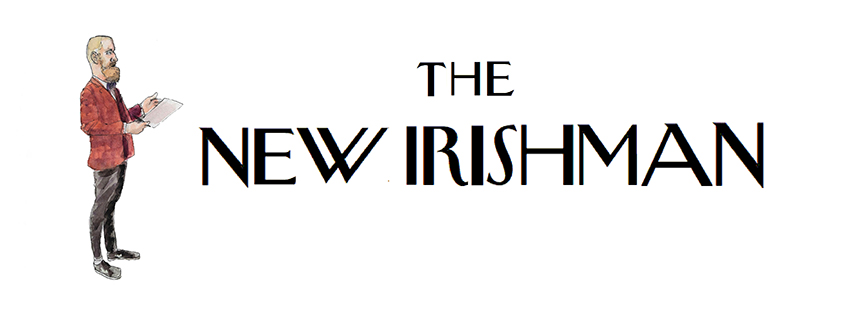Brian John Spencer: "When did you first learn about the Easter Rising of 1916?" Andy Pollak:
"Reading about it as a teenager in London."BJS: "Do the men, the act or the stated ideals in the proclamation mean anything to you?" AP:
"I admire the courage and idealism of the rebels of Easter 1916, although ultimately I think their sacrifice served to divide the island of Ireland even more irretrievably than under an eventual Home Rule government - and for that reason I am sorry it happened. I also admire the ideals of the Proclamation, although I am disappointed that more of them did not become part of the governing ethos of the new independent Irish state."BJS: "When did you first learn about the Battle of the Somme?" AP:
"When studying modern European history at university aged around 20."BJS: "Does this act, the men and their determination to show their loyalty to Britain mean anything to you?" AP:
"Not hugely. I identify more with the British in the Second World War when they were fighting Nazism (my father fought against fascism and Nazism)."BJS: "As a (British/Irish/Northern Irish*) person, is the 1916 Rising important to you and your sense of identity and sense of belonging on this island?" AP:
"As an Irish/Northern Irish person, the 1916 Rising is not particularly important to my sense of identity and sense of belonging in Ireland."BJS: "As a (British/Irish/Northern Irish*) person, is the Somme offensive important to you and your sense of identity and sense of belonging on this island?" AP:
"As an Irish/Northern Irish person, the Somme offensive is not important to my sense of identity or sense of belonging in Ireland."BJS: "Will you be commemorating or celebrating either of these two events in April and July of this year respectively?" AP:
"Commemorating - not celebrating - both events."BJS: "Are you happy with the series of commemorative events put on by the Irish State? And what do you think of Arlene Foster's take on the events of Easter 1916 (she has refused to attend any commemorations)?" AP:
"I think the Irish Government is trying its best to be sensitive and even-handed in its 1916 commemorations. Although I understand Arlene Foster's strong unionism (and thus hostility to the Easter Rising), I think that in the context of the need for community reconciliation in Northern Ireland (and the Irish Government's keenness that she should take part in some 1916 commemorative events), her attitude is unfortunate. At the very least she should be open to coming to the South to debate the relative significance of the Somme offensive and the Easter Rising."BJS: "As a person on (or from) the island are you happy with the where we are now at in terms of culture, cosmopolitanism and broad-mindedness?" AP:
"I think the Republic is becoming more open to other cultures and thus more cosmopolitan and broad-minded. Unfortunately Northern Ireland still has a long way to go."BJS: "What are your hopes for the future of this divided province and island?" AP:
"I hope that peace, social justice, community reconciliation and fairly-distributed economic prosperity will prevail in both parts of Ireland. I have a dream that one day the people of the two jurisdictions may agree some constitutional structure that will allow them to live together in relative harmony on the island. I do not expect to see this in my lifetime."


No comments:
Post a Comment